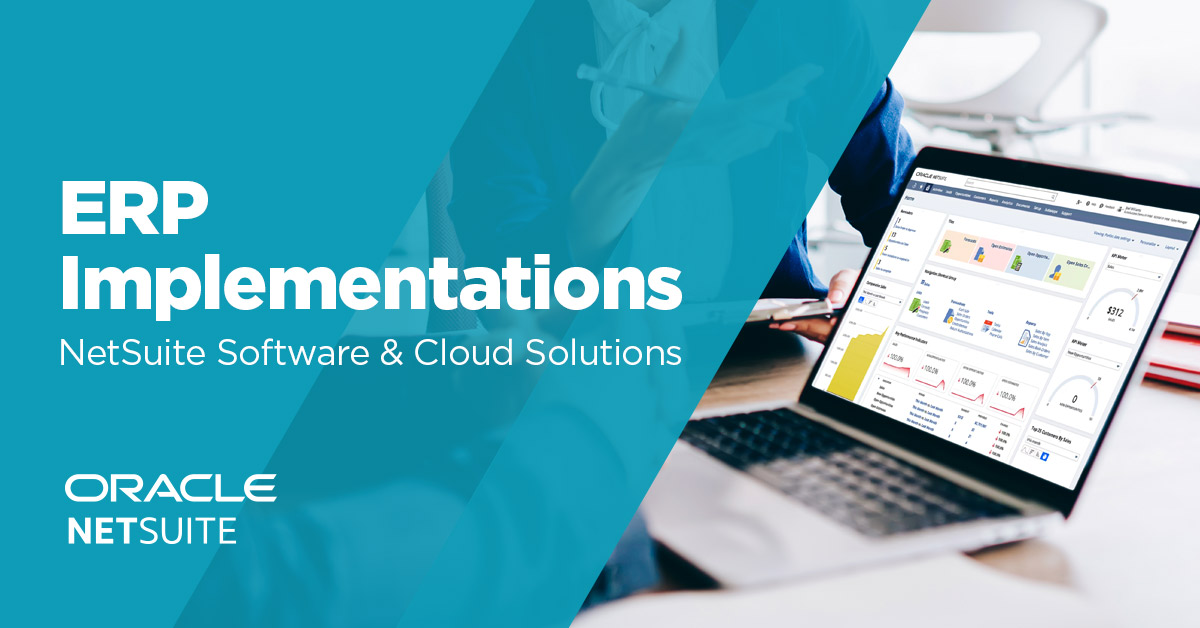Realistically speaking, the financial management of a company is what determines the future growth of an organization.
A part of this financial management includes the working capital of a company. In other words, money that is readily available to run business operations and complete payments. Easily deciphered by subtracting current liabilities from current assets.
Now that that’s explained, where does cash flow management come into play?
In a nutshell, cash flow is the movement of money in and out of a company. Negative cash flow can often indicate future bankruptcy, while positive cash flow is a sign of a company’s ability to grow.
Cash flow management ensures that a business has enough cash to pay invoices and earn enough revenue to continue operating indefinitely.
For NetSuite users, a cash flow management tool embedded within the ERP software, NetSuite Cash 360, effectively manages cash flow transactions.
Request More Info About Cash Flow Management with NetSuite Cash 360
What Is Cash Flow Management in NetSuite?
As mentioned above, cash flow management is how a business manages the money that comes in and out in order to maintain a healthy cash bucket.
This cash is then used to pay short-term debts or reinvest in areas that would be most profitable and beneficial to an organization.
Depending on the company, some might require more cash than others, but that being said, every company must - and should - master the management of cash so that they can pay expenses, collect payments from customers, and preserve financial stability.
In fact, poor cash management is one of the main reasons many new businesses do not reach success after five years.
Effective cash management supports a business on important decisions that can lead them to make smart investments and guarantee they’ll always have the cash on hand to pay bills.
It’s important to note that a company can be profitable and still have a negative cash flow, and vice versa.
For example, a company with a valid cash flow could actually have low revenue if it took on new debt, which would appear as cash positive, but wouldn’t reflect on the profits.
On the other hand, a company could be extremely profitable, but rapidly burn through cash due high overhead and operational expenses.
Why Effective Cash Flow Management Matters
The importance of cash flow management lies within a company’s goal of growth and financial stability.
Effective cash flow management can help keep a business running, even during slower periods, by ensuring it meets everyday business needs, invests in new ways to grow, and maintains good credit for future financial requirements.
Let’s look at a scenario where a company doesn’t have good cash flow management in place. Invoice One comes in on a Monday and is due in 90 days. The finance department pays it right away. Invoice Two comes in on Thursday and is due in 30 days.
Without the right automation tools, the company soon realized they didn’t have enough cash to pay Invoice Two. What they should have done is pay Invoice Two and wait for the eventual inflow of cash to pay Invoice One.
The importance of a powerful tool for cash flow would manage these cash payments, and have scheduled Invoice One for a later date to ensure that there was always a steady flow of cash.
Keep in mind that cash flow management isn’t primarily about having money to make payments, it’s also about investing cash effectively and efficiently, without leaving it in low-return accounts and petty cash.
A well-managed cash flow establishes timely investments that help businesses thrive or stay afloat during economic emergencies.
Implementing a dynamic cash flow management system can make a huge difference in a company’s cash flow processes.
How Cash Flow Management Drives Better Business Decisions
Whether it’s business loans, cash flow statements, or a line of credit, decision-makers should always be aware of the financial assets and liabilities of their business.
A cash flow management system is beneficial for managers, executives, and owners for a multitude of reasons:
Adequate Liquidity
Not only does it provide companies with real-time visibility into all financial aspects, but also gives them the ability to balance cash on hand with current liabilities.
This is crucial when it comes to making decisions on loans, short-term debts, and outgoing transactions.
Automated Data
Manual processes are outdated and risky. With a modern tool like NetSuite Cash 360, automation ensures that data imports, bank feeds, and reconciliations are seamless, accurate, and always up to date. This frees up your finance team from manual errors and allows them to focus on strategic activities like budgeting and forecasting.
Balancing Accounts
Cash flow management software enables direct syncing with bank records and account balances, allowing for frequent and more accurate reconciliations. This ensures your books reflect reality in real time and prevents surprises at month-end or quarter-close.
Error-Free Analytics
Three words: error-prone data. And when it comes to making high-level decisions like securing funding, launching new initiatives, or managing credit risk data integrity is non-negotiable.
With NetSuite’s built-in analytics and customizable dashboards, leadership can easily access and interpret accurate financial trends, cash flow forecasts, and performance metrics.
What is NetSuite Cash 360?
We’ll say it once and we’ll say it again, over the years insufficient cash flow is one of the main reasons that new businesses fail within the first five years.
And, even though it’s a crucial aspect of business management, many businesses continue to suffer with poor cash flow due to low visibility and the inability to forecast with accurate data.
NetSuite Cash 360, a cash flow management solution, is embedded within NetSuite and offers forecasting and real-time view of a company’s cash flow position.
For organizations in need of a simplified cash flow process, Cash 360 gives users access to a customizable dashboard that:
- Links to critical cash activities
- Displays task reminders
- Shows current cash balance
- Validates accounts receivable and payable balances
- Emphasizes cash trends
- Forecasts more than six-months ahead
Day-to-day operations, employee salaries, supplier transactions, marketing budgets, debt payments, capital expenditures, and long-term investments are also all managed through this cash flow management software.
How to manage cash flow in business with NetSuite Cash 360
There are two notable features within Cash 360 to help users with cash flow management:
Cash Management
A dashboard - with real-time data - monitors receivables, payables, and available cash to improve visibility. NetSuite users can review current trends as well as a six-month cash flow forecast to enforce more informed decisions.
Cash Forecasting
Funding sources, planned expenditures, sales forecasts, and billing schedules are just a few of the available data points to help develop more accurate forecasts. Cash flow forecasting within NetSuite Cash 360 helps users to integrate one-time cash inflows and outflows, like financing and capital investments.
At GURUS Solutions our decades of experience have helped businesses across North America scale by implementing the right solutions. If you’re in need of better cash flow management, contact our team of experts today!
Learn More About Cash Flow Management with NetSuite Cash 360

